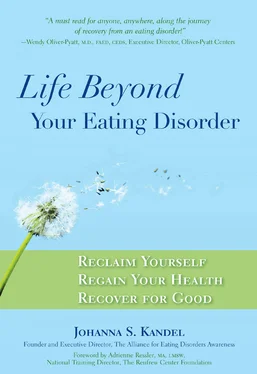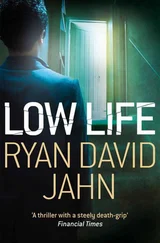Ten years ago, my battle with bulimia was in full swing. My days were consumed by an illness I never expected or wanted in my life. When people think about eating disorders, they often think that they are a choice, but that simply isn’t true. Eating disorders are not choices; they are mental illnesses, and they are also the leading cause of death among all mental diseases.
Eating disorders are not choices; they are mental illnesses.
In order for you to completely understand why my eating disorder began, I think it is important for you to understand a little bit about my past. I grew up in a very competitive home. My mom was a former national champion baton twirler, and by the time I was five, I was well on my way to pursuing the same goal. From the very beginning, I was a complete perfectionist and put a lot of pressure on myself. From pushing myself in the gym to expecting straight As on my report card, I didn’t want to settle for anything less than the best.
One point I want to stress to you is that I didn’t wake up one day and decide I wanted to be a bulimic. I vividly remember when my eating disorder started. I’d had a bad day at the gym and was really upset. For some reason I got so worked up that I actually threw up. It just happened; but in that moment something was triggered in my mind that eventually led to a life consumed by an eating disorder and some very serious side effects.
I didn’t wake up one day and decide I wanted to be a bulimic.
For three years my eating disorder was my secret, but by the time I was a junior in high school, I physically could not deal with it anymore. I went to my parents for help, but they didn’t really know what to do. I became very angry with them for not being able to help me or give me what I needed, and at that point anorexia also came into the mix. By the time I started my senior year, my symptoms were very visible. I was extremely weak, I had lost half the hair on my head, I had broken blood vessels in my eyes, I had done damage to my esophagus from the bingeing and purging, I couldn’t digest food properly even if I wanted to, and I was at a dangerously low weight. By November, I knew I couldn’t live that way any longer. I went to my parents once again and at that point they took me to our family doctor, who diagnosed my eating disorder and told us that I would need to work with an outpatient treatment team. Together we found a psychologist, a psychiatrist and a nutritionist who would help me start to heal.
A major turning point in my recovery occurred when I left for the University of Florida the following fall. This was my opportunity to start my life over, but it also could have triggered my eating disorder again. I decided the best thing to do would be to surround myself with people who could help keep me strong and to get involved in groups that helped to prevent eating disorders. I volunteered at the student health-care center and started to tell my story. Interestingly, speaking out in public also helped me to help myself. I realized that by being open and honest about what I had been through, I was helping others who were either suffering or knew someone who was.
I realized that by being open and honest about what I had been through, I was helping others who were either suffering or knew someone who was.
At that point, I decided to start HOPE, Helping Other People Eat, which is now a 501(c)(3) nonprofit organization that works for the prevention and awareness of eating disorders.
I also wanted to give back to those organizations and groups that had helped me during my struggle. The National Eating Disorders Association provided a wealth of information not only for me but for my parents. Currently, my involvement with NEDA ranges from being a yearly NEDAwareness Week coordinator to serving as the inaugural chairwoman of the National Junior Board. I also lobby for insurance parity with the Eating Disorders Coalition on Capitol Hill and with the NEDA STAR Program in Florida, and I am an active supporter of the Alliance for Eating Disorders Awareness.
In 2006 I won the title of Miss Florida and went on to compete in the Miss America pageant. During my reign as Miss Florida, I traveled the state, educating all age groups about eating disorders. Over the last few years, I have spoken to more than forty thousand people about these illnesses and have made a commitment to continue speaking and reaching out for the rest of my life.
I truly believe that we go through things for a reason. Knowing how terrible it was for me to suffer from an eating disorder, I now live my life every day trying to prevent others from traveling down that path and helping those who are suffering to find the help they need.
Chapter Two
GIVE UP THE GUILT—AND RECLAIM YOUR POWER
And the day came when the risk to remain tight in a bud was more painful than the risk it took to blossom.
—ANAÏS NIN
IF YOU’RE ANYTHING LIKE ME—and the many, many people I’ve met giving presentations and in my support groups—you may have spent a lot of time beating yourself up and wondering how you could ever have allowed this to happen.
I honestly thought there was a perfect weight that would make me a perfect person.
In my case, there were fifteen young dancers in my class when we were told to lose weight. The others just lost a few pounds and then went on about their lives, while for me the need to lose just continued and continued and continued. Each time I got close to my weight goal, I raised the bar and moved the goal line back. I honestly thought there was a perfect weight that would make me a perfect person. And each time I reached a lower weight, I really believed that when I reached that next new lower number I’d be satisfied. I just chased that rabbit—the illusive, perfect me—down the rabbit hole and found myself in a totally strange world, one in which I actually didn’t have any control even though I had convinced myself that I was in complete control. And then, when I tried to climb out, it was like walking through a hall of mirrors; I couldn’t find the exit no matter how hard I tried.
I just chased that rabbit—the illusive, perfect me—down the rabbit hole and found myself in a totally strange world, one in which I actually didn’t have any control.
Even when I was in recovery, I still kept thinking that I should have been stronger, that I should never have let this happen. I should never have allowed myself to slide down into that hole. Why, why, why did it happen to me?
Genetics—At Least Part of the Answer
One of the most exciting and enlightening moments of my life came when I learned that research indicates there is a genetic component to eating disorders. Some people are born more vulnerable than others to developing an eating disorder, and various researchers have linked the problem to the disruption of serotonin levels in the brain. Serotonin is a neurotransmitter, a brain chemical whose functions include the regulation of both mood and appetite. Some researchers have theorized that increased serotonin levels may leave people in a perpetual state of anxiety, leading them to gain some sense of control by restricting food intake. Low serotonin levels, on the other hand, could lead to bingeing on foods high in carbohydrates, which would temporarily raise serotonin levels and elevate mood.
In a strange way it was extremely liberating for me to read the following statement made by Dr. Thomas R. Insel, director of the National Institute of Mental Health, in an October 5, 2006, letter to the chief executive officer of the National Eating Disorders Association:
Research tells us that anorexia nervosa is a brain disease with severe metabolic effects on the entire body. While the symptoms are behavioral, this illness has a biological core, with genetic components, changes in brain activity, and neural pathways currently under study.
Читать дальше












